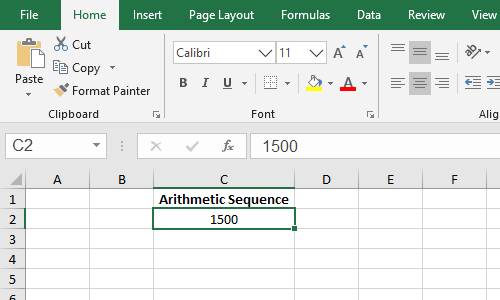
- AUTOFILL SEQUENTIAL NUMBERS IN EXCEL 2016 UPDATE
- AUTOFILL SEQUENTIAL NUMBERS IN EXCEL 2016 CODE
- AUTOFILL SEQUENTIAL NUMBERS IN EXCEL 2016 SERIES
When autocomplete results are available use up and down arrows to review. In the Advanced category, under Editing options, select or clear the Enable fill handle and cell drag-and-drop check box to display or hide the fill handle. In the same manner, the list of words from to in meaning number two is. In Excel 2007, click the Microsoft Office Button, and then click Excel Options. In Excel 2010 and later, click the File tab, and then click Options.

The fill handle displays by default, but you can turn it on or off. For example, to start a numbered list by using 000-001, you enter the formula =TEXT(ROW(A1),"000-000") in the first cell of the range that you want to number, and then drag the fill handle to the end of the range. Steps: At first, write down the following formula in cell D5. Using the SEQUENCE function, you have to provide only one parameter, rows. Furthermore, you can generate a number sequence using a function called SEQUENCE. To enter specific sequential number codes, such as purchase order numbers, you can use the ROW function together with the TEXT function. Using SEQUENCE Function to Auto Generate Number Sequence. For more information, see Create or delete an Excel table in a worksheet.
AUTOFILL SEQUENTIAL NUMBERS IN EXCEL 2016 SERIES
All rows that are added at the end of the table are numbered in sequence. Many of the worksheets that you create with Excel 2016 require the entry of a series of sequential dates or numbers. If you are using the ROW function, and you want the numbers to be inserted automatically as you add new rows of data, turn that range of data into an Excel table.
AUTOFILL SEQUENTIAL NUMBERS IN EXCEL 2016 UPDATE
You can manually update the numbering by selecting two numbers that are in the right sequence, and then dragging the fill handle to the end of the numbered range. The sequence may be interrupted if you add, move, or delete rows. These numbers are updated when you sort them with your data. For more information, see Display or hide the fill handle. If saving a workbook takes a long time, clearing the Recalculate workbook before saving check box may improve the save time.Tip: If you do not see the fill handle, you may have to display it first. Note: When you click Manual, Excel automatically selects the Recalculate workbook before saving check box. Workbooks only when you explicitly do so (by pressing F9), in theĬalculation options section, under Workbook Calculation, click

See screenshot: Now the specified column is filled with descending series numbers.

In the Series dialog box, enter the descending number into the Step value box (Here we enter -1 into the box). You can press F9 to do it manually or turn in automatic calculations.Ĭlick the File tab, click Options, and then click the Formulas category. Release the mouse, and then click Series from the popping up menu.
AUTOFILL SEQUENTIAL NUMBERS IN EXCEL 2016 CODE
The reason there was no subtraction in my original code is when you start at Row 1, one less than that is zero and since subtracting zero does not change a value, it was omitted.

Next, click on the Fill option under the Editing section, as shown in the below screenshot. If you started at Row 5, you would subtract 4. Follow the below steps to fill series in the Excel: We must first insert 1 in cell A3. The sheet calculations are probably set to manual. Note that what is being subtracted is one less than the start row number.


 0 kommentar(er)
0 kommentar(er)
